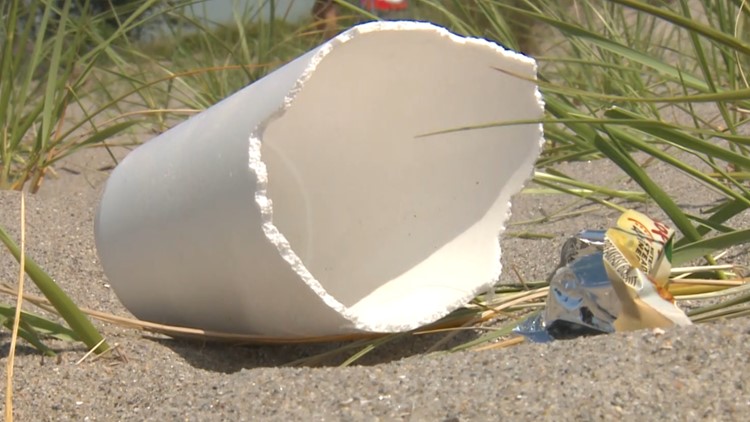HARTFORD, Conn. — Gov. Ned Lamont announced Tuesday a series of proposals that will address the future of waste management in Connecticut, mainly encompassing recovery after the Materials Innovation and Recycling Authority (MIRA) plant closed down and shifting focus on handling food waste.
These proposals come after the MIRA plant closed down in July 2022. This has led to 40% of Connecticut's trash being shipped out of state for disposal. Annually, more than 860,000 tons of solid waste from municipalities will be shipped out.
The governor said this is not a good long-term strategy, particularly for the environment and for the state, since Connecticut would have to rely on out-of-state communities to accept our waste.
"With MIRA closing its doors, we’re faced with the challenge of what to do with about a third of our waste tonnage, and relying on out-of-state landfills isn’t the answer," Lamont said.
Instead, he said it's time to "reimagine" the state's waste infrastructure.
Lamont proposes the state take the lead in decommissioning MIRA by establishing a new board that will prepare the site for redevelopment, assist municipalities still using MIRA transfer stations, and hire environmental consultants to help complete these tasks.
There is also a focus on diverting organic materials, including food scraps. The effort to reduce food waste for recycling or composting is part of a 2030 goal to divert over 185,000 tons of food waste per year if the proposal is passed.
Part of that plan includes providing universal access to a source that would separate food scraps for all residents and businesses by 2028 and allow municipalities to contract separately for organics collection.
Expansion of the Commercial Organics Recycling Law would allow food waste collection from institutional sectors, like hospitality, colleges, hospitals, correctional facilities and more.
To support the state's waste management programs, a fee framework was proposed: There would be a $5 per ton fee on all waste destined for landfills and received at a multitown transfer station as well as a $3 per ton fee for waste received at a waste-to-energy facility, up from $1.50.
The legislative proposal also includes language that would require packaging producers to take responsibility for the waste their packaging materials create.
To increase recycling, Lamont proposes the state takes after California in applying minimum post-consumer recycled content standards for plastic beverage containers, since plastic has a lower recovery rate compared to glass and aluminum.
This proposal will be part of a bigger package Lamont will bring to the Connecticut General Assembly in February.
Earlier this week, Lamont proposed a series of laws that are aimed to curb gun violence in Connecticut.
---
Have a story idea or something on your mind you want to share? We want to hear from you! Email us at newstips@fox61.com
---
HERE ARE MORE WAYS TO GET FOX61 NEWS
Download the FOX61 News APP
iTunes: Click here to download
Google Play: Click here to download
Stream Live on ROKU: Add the channel from the ROKU store or by searching FOX61.
Steam Live on FIRE TV: Search ‘FOX61’ and click ‘Get’ to download.



